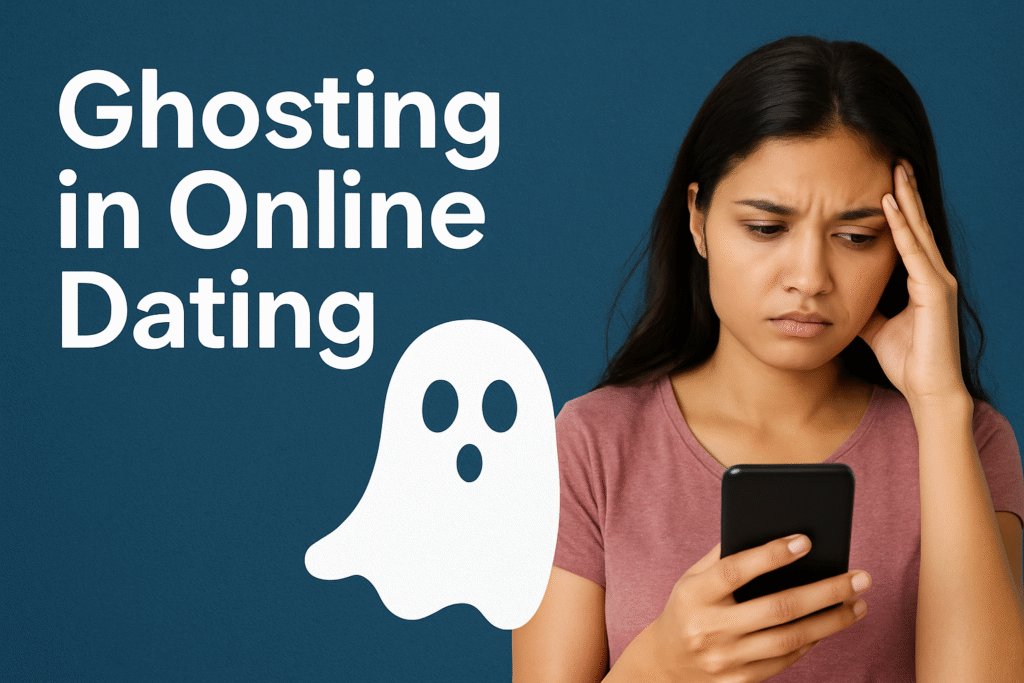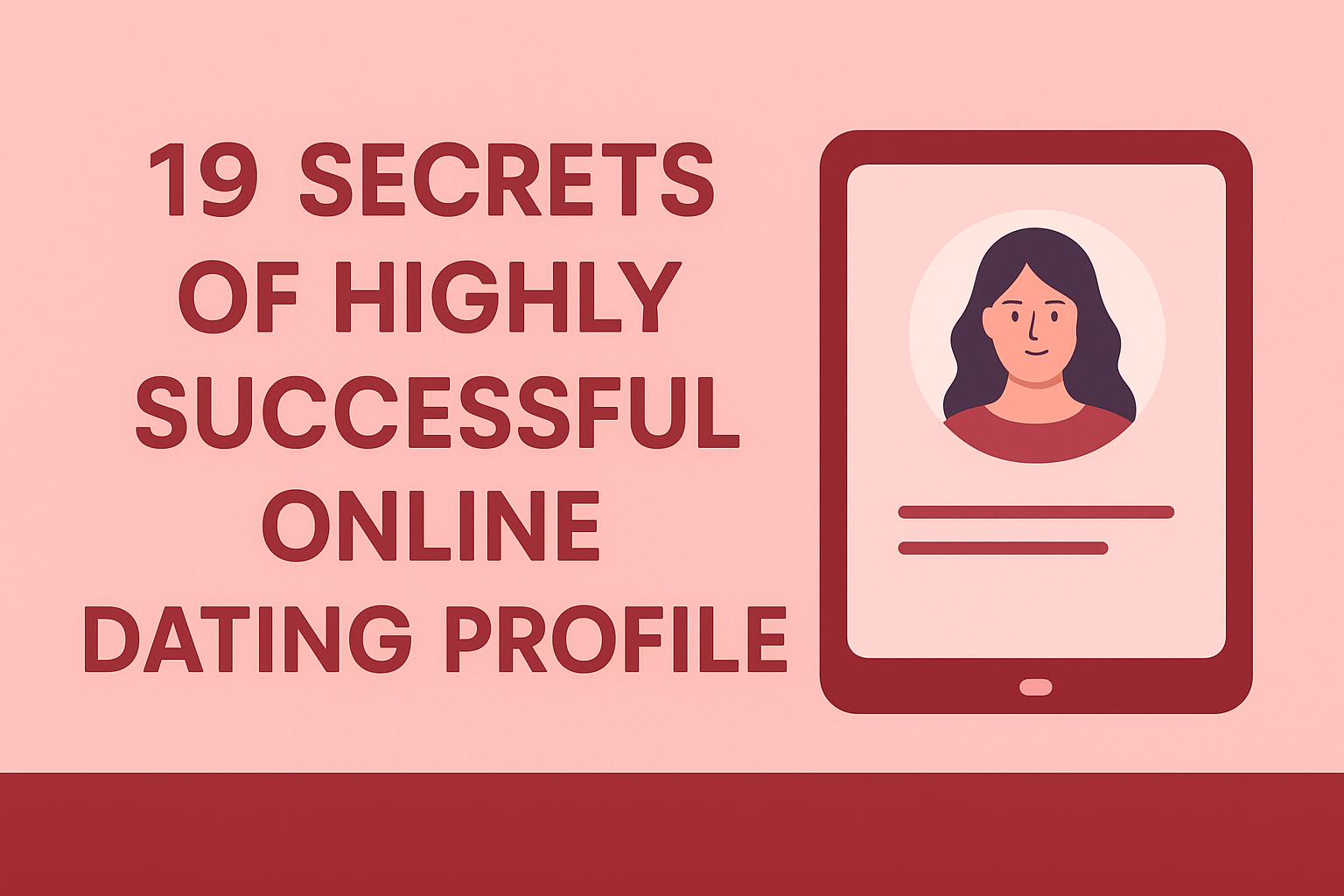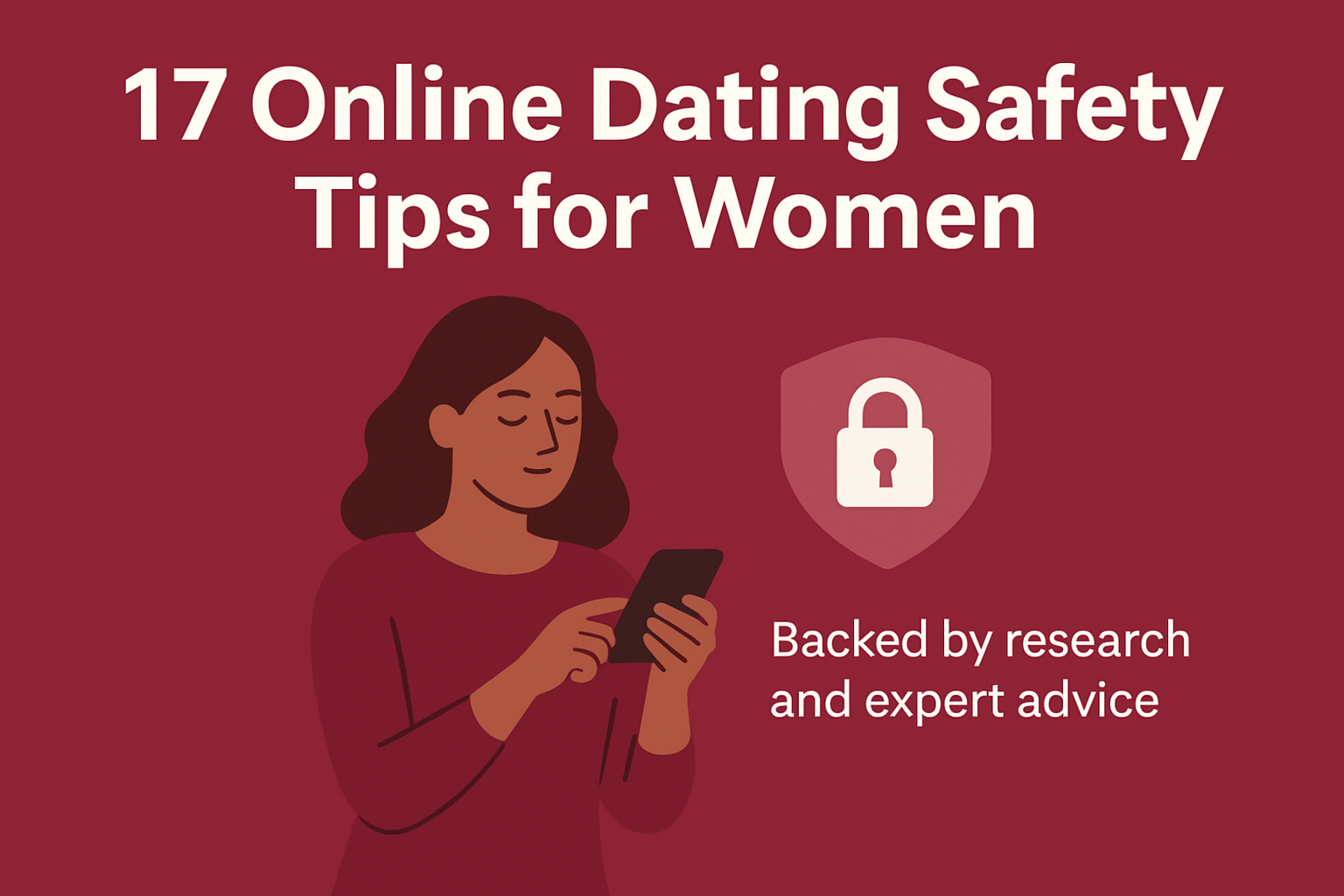Ghosting in online dating is something almost everyone has experienced. If you’ve ever stared at your phone waiting for a reply that never came, welcome to the club. In 2025, with all our AI matchmakers and VR date nights, you’d think ghosting would be over by now. Spoiler: it’s not.
Ghosting is still one of the most common heartbreaks in online dating. According to a 2023 survey by Pew Research Center, about 76% of online daters have experienced ghosting at least once. That’s nearly four out of five people. So no, you’re not overreacting. It’s a shared epidemic.
The question is: why does ghosting still hurt so badly, and how do you deal with it without losing faith in dating apps altogether?
Let’s break it down.
Why Ghosting Still Hurts in 2025
1. The Brain Hates Unfinished Stories
Neuroscience shows our brains crave closure. When someone ghosts, they rob you of that ending, leaving your mind scrambling to fill in the gaps. You start replaying conversations, wondering if the meme you sent was too cringe or if your last message sounded desperate.
Example:
Sarah, 29, from New York, matched with a guy on Hinge. They texted daily for two weeks, even planned a rooftop date. The night before, he stopped replying. No explanation. Weeks later, she was still scrolling back through their chat, searching for clues.
Ghosting doesn’t just end a conversation; it leaves an emotional cliffhanger. And if you are currently dealing with a need for closure, as a wise person once said, “The silence is the closure.” If they cared enough, they would tell you why.
2. It Feels More Personal Than It Is
A polite rejection stings, but at least it acknowledges you. Ghosting? It’s silence. And silence feels personal. Your brain takes that lack of feedback as rejection on steroids.
It’s like applying for a job and never hearing back. But instead of a résumé, it’s your heart on the line.
3. Digital Bonds Still Feel Real
Some argue: “But you never even met them, how can it hurt?” Simple: emotional investment doesn’t require physical presence.
Think about it. You laughed together, shared secrets at 1 a.m., maybe even video-chatted. Those interactions build dopamine-fueled bonds, and when those bonds suddenly break, your brain processes it like a mini-breakup.
4. Ghosting Triggers Old Wounds
Ghosting often pokes at deeper insecurities. If you’ve ever struggled with abandonment, rejection, or low self-esteem, a disappearing act can feel like history repeating itself. It’s not just this one person; it’s every letdown rolled into one painful silence.
Example:
Daniel, 32, admitted that when he was ghosted, it reminded him of being ignored in high school. That old wound made the new rejection feel ten times heavier.
5. It Clashes With Modern “Connection Culture”
In 2025, we live in a world of constant connection. We’re always online, always reachable. That makes ghosting feel even harsher. If someone can post Instagram stories, like TikToks, and reply to group chats but can’t send you a two-word text? That stings.
It’s not just absence, it’s being ignored in a world where attention is currency.
Why People Ghost (Even When They Shouldn’t)
Before you spiral, let’s address the other side. Ghosting is rarely about you. Here’s why people do it:
-
Avoiding awkwardness: Confrontation is uncomfortable. For some, disappearing feels “easier.”
-
Too many options: Dating apps feed an endless swipe culture. Some people treat connections as disposable.
-
Fear of hurting feelings: Ironically, ghosters think silence is kinder than rejection (spoiler: it’s not).
-
Emotional immaturity: Let’s be real, ghosting often reflects their lack of communication skills.
Example:
James, 34, admitted in a Reddit thread that he ghosted because “I didn’t know how to say I wasn’t feeling it without being mean.” The irony? His silence was way meaner.
How to Handle Ghosting Without Losing Your Cool
Here’s the part that matters: you can’t control ghosting, but you can control your reaction.
1. Don’t Chase the Ghost
Your first instinct may be to double-text: “Hey, did you get my message?” or the classic “???”
Don’t. If they’ve gone silent, chasing only drains your energy.
Pro tip: Give yourself a 48-hour rule. If they haven’t replied, move on. Anyone genuinely interested will find a way to reach out.
2. Reframe the Narrative
Instead of spiraling, “What’s wrong with me?”, flip it. Ghosting is a red flag about them, not you. If someone can’t send a two-sentence message, imagine how they’d handle conflict in a relationship.
Think of it as self-elimination. They saved you time by showing their true colors early.
3. Create Your Own Closure
Closure doesn’t have to come from the other person. You can create it.
-
Write the message you wish you could send, then delete it.
-
Journal about what you learned from the interaction.
-
Vent to a friend (bonus: friends usually have savage one-liners that make ghosters sound pathetic).
Example:
After being ghosted, Maya, 26, wrote herself a text as if it came from her ghoster: “Hey, I’m not ready for something real right now. You deserve better.” It wasn’t real, but it gave her peace.
4. Set Healthy Boundaries Going Forward
If ghosting really affects you, address it upfront. A simple line like:
“Hey, I value honesty. If you’re not feeling it, just let me know, it’s totally fine.”
This sets the tone and filters out people who can’t handle basic communication.
5. Redirect Energy Toward People Who Show Up
Here’s the truth: if someone vanishes, they weren’t your person. Instead of obsessing over them, redirect that energy into people who actually show consistency.
-
Reply to other matches.
-
Take a break and do something offline (gym, coffee with friends).
-
Remember: you only need one person who stays.
The Psychology of Ghosting: Why It Stings So Badly
Let’s get nerdy for a sec.
-
Attachment theory: If you lean anxious in attachment style, ghosting can trigger panic because it mimics abandonment.
-
Rejection sensitivity: Our brains are wired to detect social rejection as a threat (back in cave days, rejection = danger). Ghosting taps into this primal fear.
-
Cognitive dissonance: You believed they liked you; their disappearance conflicts with that belief. The brain hates contradictions.
This isn’t about weakness, it’s about biology. Ghosting literally hijacks your nervous system.
How to Ghost-Proof Your Dating Mindset
You can’t control ghosters, but you can build resilience:
-
Keep perspective: One person’s silence ≠ is your value.
-
Diversify connections: Don’t invest too much in one match too early.
-
Use apps with accountability features: Hinge, Bumble, and newer apps in 2025 now flag inactive or disappearing users.
-
Practice detachment: Enjoy conversations for what they are without attaching too much expectation.
- Reframe the silence: Instead of chasing closure, consider ghosting as an answer in itself. Their silence is your sign that they’re not the right fit. Painful? Yes. But freeing? Absolutely.
When Ghosting Crosses the Line: Situationships & Serious Cases
Ghosting after one chat is annoying. But ghosting after weeks—or worse, after intimacy—is brutal. That’s not just rudeness, that’s emotional negligence.
If this happens:
-
Allow yourself to grieve (it’s a breakup, even if unofficial).
-
Avoid stalking their socials—it delays healing.
-
Talk it out with someone you trust.
Pro tip: If ghosting becomes a repeated pattern in your dating life, it may be worth reflecting on who you’re choosing and why. Patterns often reveal more than isolated incidents.
Final Thoughts: Ghosting in Online Dating
Yes, ghosting sucks. It’s messy, it’s immature, and it’s emotionally draining. But here’s the reframe: ghosting is the universe’s (or, let’s be honest, the dating app algorithm’s) way of removing people who don’t deserve you.
The right person? They won’t disappear mid-conversation. They’ll show up, text back, make plans, and actually follow through.
Until then, remember: their silence is not your rejection—it’s your redirection.
Friendly FAQ – Ghosting in Online Dating
Why does ghosting hurt so much in online dating?
Because your brain craves closure, ghosting leaves you with unanswered questions, making the rejection feel more personal.
Is ghosting normal in 2025?
Yes. Sadly, ghosting is still one of the most common issues in online dating, with surveys showing that most people have experienced it.
How should I handle being ghosted?
Don’t chase; reframe it as their loss, create your own closure, and focus on people who show up.
What does ghosting say about a person?
It usually reflects poor communication skills, avoidance of conflict, or emotional immaturity, not your worth.
Can ghosting ever be a good thing?
Yes. It weeds out people who aren’t emotionally ready or respectful, saving you time and heartache in the long run.
Before you go, read aslo some articles from our blog below.
Dating App for Single Parents.
Signs a Dating App isn’t for you.
Types of Dating Apps in the Market Today
Ways to use social media to find love




